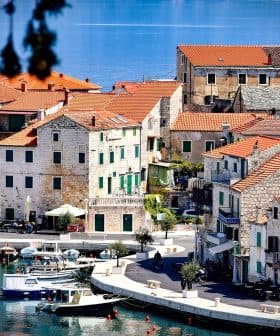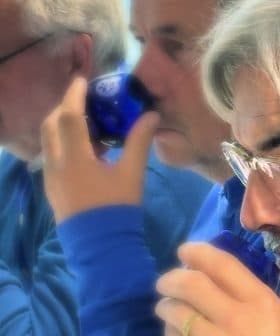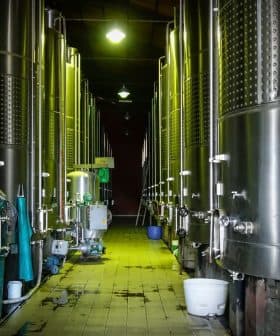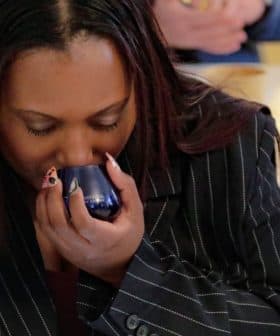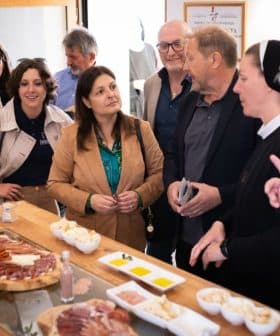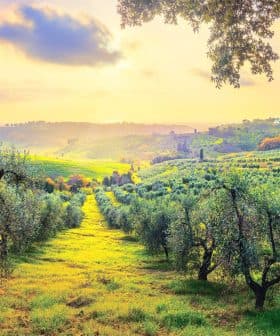Olive Oil Sommelier Course Debuts in New York
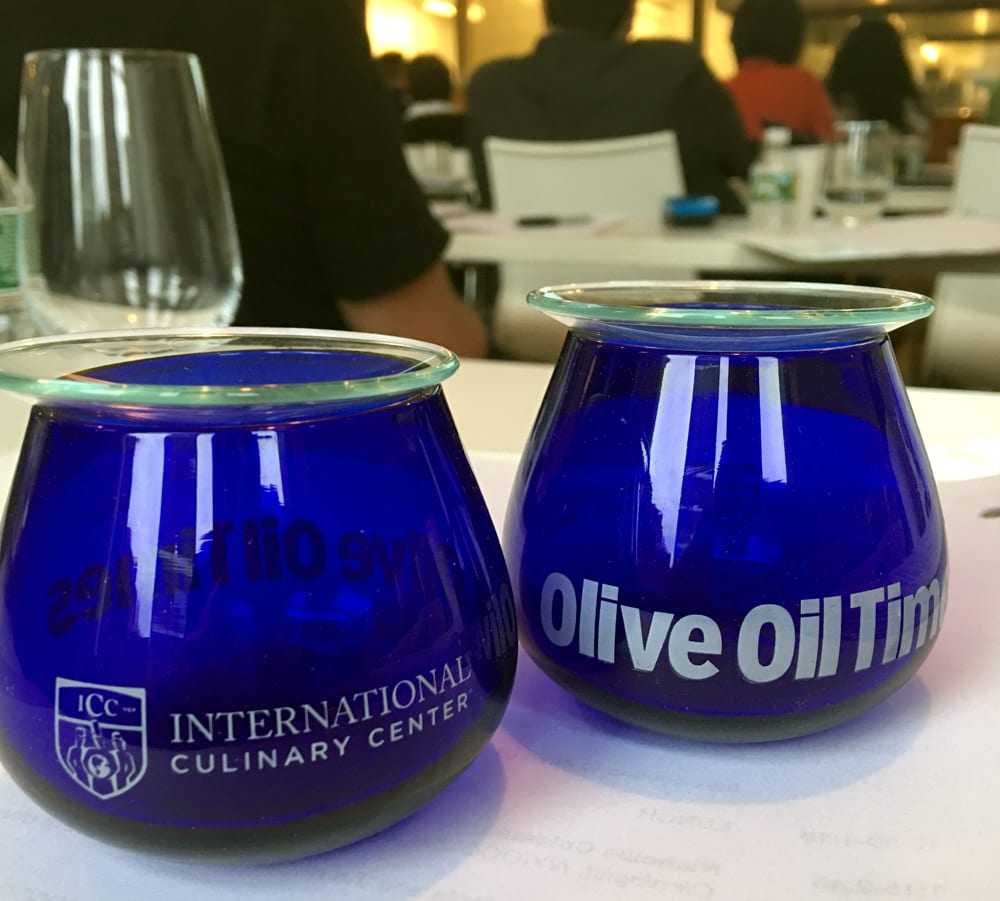
The Olive Oil Sommelier Certification Program held in New York attracted participants from around the world, including olive oil producers, chefs, and distributors, who praised the comprehensive course for significantly raising their knowledge and inspiring them to improve their businesses. The program, developed by Curtis Cord and the late Dorothy Cann Hamilton, aims to educate individuals on the production, quality management, and sensory assessment of extra virgin olive oil through a series of courses taught by renowned experts in the field.
Olive oil producers, distributors, retailers, chefs, journalists, quality control professionals and foodies from across the globe converged on New York’s International Culinary Center October 8 to 10 to participate in an innovative, world-class program focused on extra virgin olive oil quality. The sold-out Olive Oil Sommelier Certification Program launched the first in a comprehensive, three-part series of courses designed to cover production, quality management, and advanced sensory assessment of the prized commodity that continues its perpetual rise in gastronomy, culture and health.
Hailing from the U.S and as far afield as New Zealand, Greece, and Canada, 40 would-be olive oil sommeliers spent three days in intensive study with a faculty of renowned experts in the various disciplines that an understanding of this complex product comprises. The instructors included one of the world’s leading experts on chemosensory science; a judging panel leader; an oleologist; an award-winning miller; New York’s top-rated chef, nutritionists, and journalists.
While the participants’ prior level of knowledge on the topic varied with their professional backgrounds, a broad sampling of their individual assessments of the course showed remarkable consistency. Not only did the students feel their level of knowledge had been raised substantially, but most went on to state with emphasis that the class would have a significant positive effect on their businesses, their crafts, and their sales. More than a few said they had been thoroughly inspired.
David Sullivan, an olive grower and producer of extra virgin olive oil for New Zealand’s Mahurangi Olives Ltd., part of the Matakana Olive Cooperative, was among the enthusiasts. “The quality of presenters, their knowledge and passion were excellent. Having experts present and coach us as we learned how to evaluateextra virgin olive oil has given me a much greater understanding of how to apply sensory evaluation techniques to production,” he said.
Small-scaleextra virgin olive oil producer Gregory Diharce from Zakynthos Island, Greece, concurred. “Part of the experience that was so enjoyable was the passion our instructors expressed. They mentioned several times that it’s important to educate so we can change the perception of olive oil. No question, everyone left feeling the same sentiment.”
The expansion of education on this burgeoning topic has been long championed by the program’s executive director, Curtis Cord, who developed the framework for the certification course with the late Dorothy Cann Hamilton, the founder of the International Culinary Center. Cord is the publisher of Olive Oil Times, and the founding president of the New York International Olive Oil Competition.
The Olive Oil Sommelier Certification Program is jointly produced by the International Culinary Center and the Olive Oil Times Education Lab which supports projects that foster a greater understanding of olive oil through collaborative initiatives with partner organizations.
“Dorothy understood the importance of olive oil in culture and gastronomy and while so many cooking schools and culinary leaders still seem ambivalent to this topic, Dorothy was not,” Cord said as he addressed the attendees at the beginning of the program. “Her leadership and encouragement were vital to the culinary landscape. And even with olive oil, she was instrumental in our development of the New York olive oil competition launched here in her school five years ago.
“But we knew there was more we needed to do, and first and foremost Dorothy was an educator. Today’s course is the first step toward realizing that vision we shared, which is to foster a greater understanding of this food that has been a part of our cultural and culinary heritage for thousands of years.”
By its very existence, participants in the level-one course stated, this new avenue for the advancement of knowledge and expertise on olive oil quality opens the field of study to new horizons.
“This course completely took things to the next level,” said John Canevari, owner of The Blue Olive in Pawling, New York. “The depth and expository nature of the program provided a whole new experience. Let me just say this: The course material was dead on point, the instruction was extraordinary, the sensory work was eye-opening, and the collaboration was invigorating.”
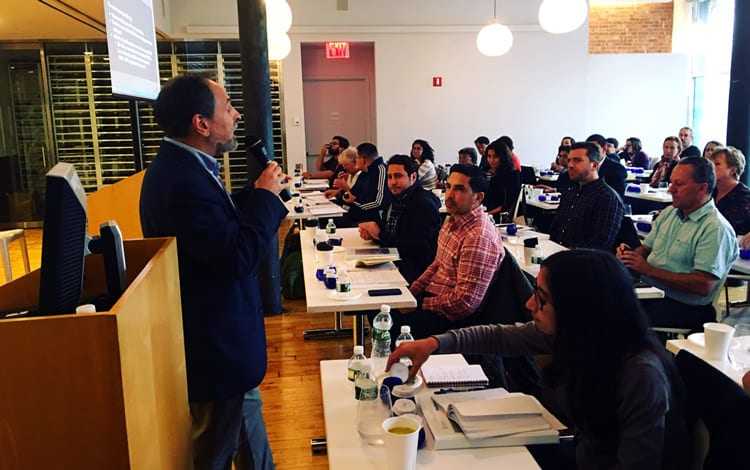
Pablo Voitzuk
“I did not know what to expect,” said Michael Favuzzi, owner of a Canadian-based importing and distributing company who said he plans to send his staff to future courses. It seemed, he said, that Cord and his faculty had been teaching the class for years. “I was seriously impressed and I can’t believe it’s the first time they have done such a workshop.”
Salvatore Russo-Tiesi is the managing director of Bono USA, a subsidiary of Bono SAS based on Sicily. The company is a leading manufacturer of extra virgin olive oil in Southern Italy, its Bono 100% Organic Blend and Bono PDO Val di Mazara EVOOs both gold medal winners at the 2016 New York International Olive Oil Competition. Tiesi echoed Favuzzi’s sentiment noting, “the program was exceptional.”
NYIOOC panel leader Carola Dümmer Medina, the renowned taster and expert in Southern Hemisphere olive oils flew in from Chile to illustrate the diverse cultivars and taste profiles of New World oils as she walked the class through sample after sample offering expert guidance with each analysis.
Oleologist Nicholas Coleman, a former NYIOOC taste panel judge and co-founder of Grove and Vine has taught olive oil courses for Zagat’s master class series, Bon Appetit, The Institute for Culinary Education, and New York and Columbia Universities.
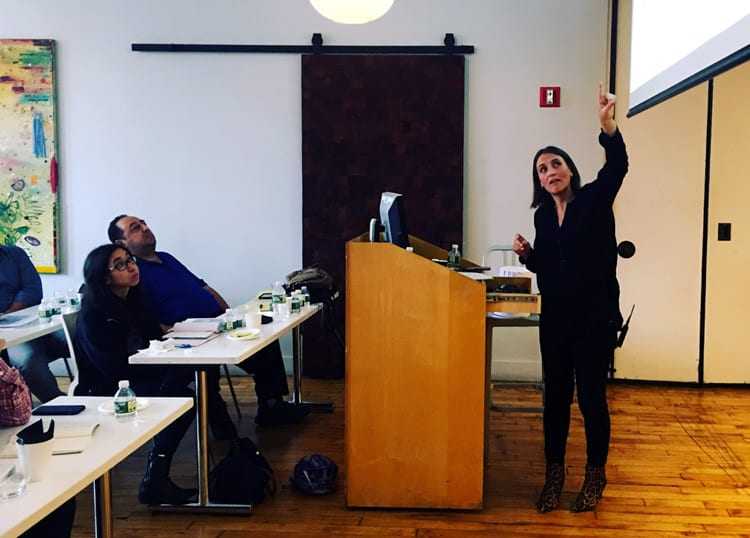
Carola Dümmer Medina
“In addition to identifying defects, we compiled fifty world-class oils from Portugal, Spain, France, Italy, Croatia, Slovenia, Greece, Morocco, Tunisia, California, Chile, Argentina, Brazil, Australia, New Zealand and South Africa,” Coleman noted. “The goal was to offer an unparalleled educational experience for attendees to learn about the aromas, flavors and textures of the world’s finest olive oils.”
Those fifty oils were curated from the vast library of submissions to the New York International Olive Oil Competition which is likely the single largest collection of high-quality olive oils anywhere in the world. The cross-section of international olive oils stood out as a major bonus to participants for the sensory evaluation components of the course.
Monell Chemical Senses Center president Gary Beauchamp illustrated the fundamentals of sensory science and his discovery of oleocanthal; award-winning California producer Pablo Voitzuk of Pacific Sun Farms connected production processes with the sensory characteristics they affect; Albert Einstein College of Medicine nutritionist Keith Ayoob provided insights into the real-world health benefits ofextra virgin olive oil and master merchant Steve Jenkins chimed in with what he had learned from 35 years of selling quality olive oils to New Yorkers. Cord discussed olive oil grades, international standards and enforcement, and he framed each session over the three days within a continuous story providing context and commentary throughout.
The James Beard “Best Chef in New York” winner, Mark Ladner of Del Posto cooked Italian regional specialties for the class to demonstrate how a properly paired extra virgin oil can elevate the tastes of dishes to new heights. (He used Roi Cru Gaaci Taggiasca from Liguria for a pesto pasta, Frantoio Franci Villa Magra Grand Cru Frantoio from Tuscany on a steak and Mandranova Nocellara for gelato.)
Russo-Tiesi expressed what many reported following the three-day workshop. “I was able to learn a lot about oils from the Southern Hemisphere and to compare and contrast them with those from the Northern Hemisphere which were perhaps more recognizable. It was very diverse, very well-rounded.” And for those like Russo-Tiesi, who came to the class to obtain a balance between an existing expertise in the production, commercial or culinary side of olive oil and sensory skills, “This course allowed my palate to catch up to the technical side of my knowledge.”
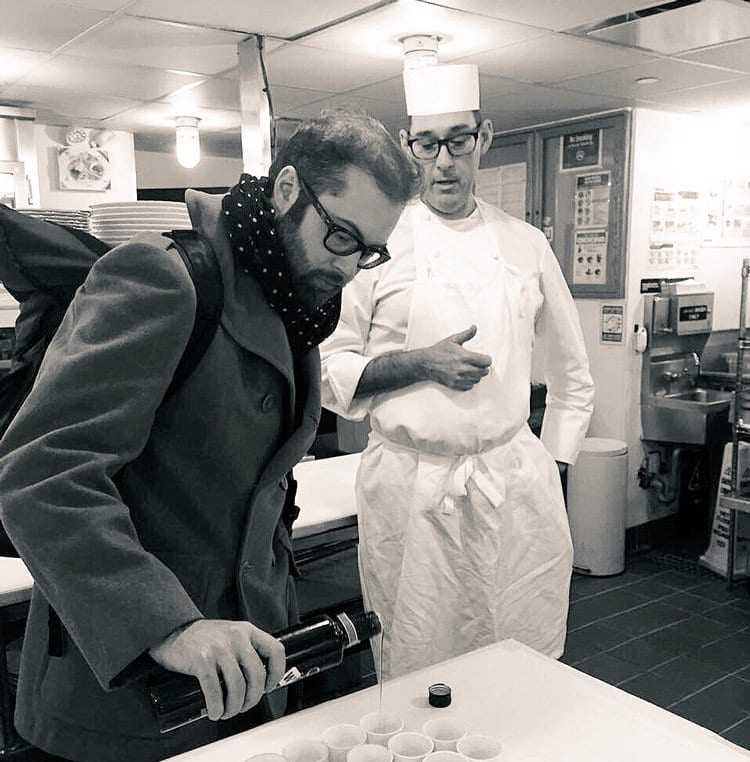
Chek Mark Ladner with Nicholas Coleman
Not all who attended the sommelier course came armed with the extensive experience of millers and producers. Jackie Dougherty, owner of City2Shore Gourmet out of southern New Jersey works with Italian producers in Spoletto, Italy and now produces her own brand of EVOO. She said she had just begun to scratch the surface of the information offered by the course, but that the instructors were responsive to questions and suggestions from those more in the intermediate category. “I learned so much, it’s amazing. I’m still processing it all.” Since she has returned from the course, she has taken action to continue her education.
Sometimes Dougherty found that she had no points of reference in her own experience for certain descriptions of tastes and fragrances identified by the instructors. For example, “I didn’t know what a green almond smelled like. So what I’ve done since returning is to start a sensory library,” she said, heeding the advice of instructors to work on the development of an internal sensory catalog that takes time and commitment. Dougherty said she plans to source herbs and spices, vegetables, even tea commonly associated withextra virgin olive oil flavor profiles to absorb and register them in her mind and palate.
“My brother lives in California next to almond country, so I asked him to send me some green almond leaves.” She’s also continuing her exploration of the various cultivars, their origins, common denominators, and variables. She said of the class, “I loved it. The course introduces you to a level of expertise I can’t wait to have.”
Level One of the Olive Oil Sommelier Certification Program will be offered again February 4 – 6, followed immediately by the advanced levels February 7 – 10 and those who may have missed the first series will likely have to be quick on the draw if they plan to register. The first one sold out in just a few weeks.
Said Canevari, “I walked away not only convinced about my continuation to the advanced courses, but with a whole new level of awareness and recognition of my desire to work in this discipline, and a more profound appreciation of EVOOs. Curtis Cord put together a remarkable program and I cannot wait for the next rounds.”



